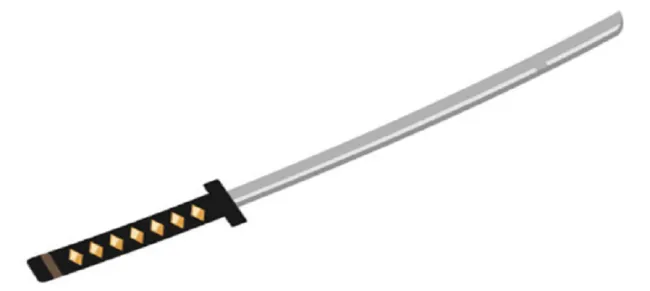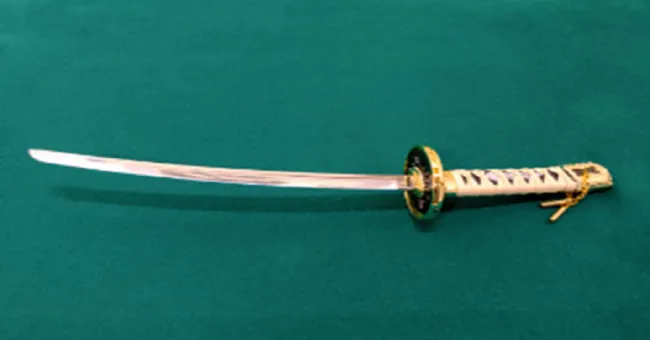Can You Own a Real Samurai Sword in America?
The samurai sword is among the few weapons that fascinate sword enthusiasts. It holds much mystery and allure as an iconic symbol of strength and beauty.
However, their sharp, single-edged blades make many people question their legality, especially in America.
This article breaks down the rules surrounding sword ownership in the USA so that you can be well-informed about buying your dream sword.
Types of Samurai Swords
The samurai were elite warriors in the Japanese ancient era. Traditionally, these swordsmen carried original weapons to symbolize their status. While samurai used many weapons, the famous piece was the katana, revered for its craftsmanship and cultural significance.
The katana had a shorter partner known as the wakizashi, a samurai sword worn with the katana. These weapons were highly effective, especially in close combat. Then came a knife-like sword called the tanto, a short piece used for cutting in close quarters.
Today, antique swords crafted by renowned Japanese swordsmiths are available. Some are stylish replicas that come with fewer restrictions than genuine katanas.
Understanding different sword types helps to clarify which laws apply to your ownership.
Historical Significance in Japan and Abroad
In Japan, the samurai sword wasn't just for fighting. It represented deep ties to the Japanese heritage and spirit of the samurai. Although not directly linked to American history, the excitement about samurai swords comes from their superb craftsmanship and aesthetic appeal.
Sword ownership in America helps to connect with the rich Japanese samurai history. However, it must be done lawfully.
Legal Landscape of Samurai Sword Ownership
The U.S. legally categorizes katanas as knives, distinguished by their sharp edges and points. The legality of carrying swords varies by state. Here's the legal aspect of gun ownership in America:
Federal Laws on Owning Samurai Swords
America has few specific laws governing sword ownership, including samurai swords at the federal level. Unlike firearms, the law treats a sword as a collectible rather than a weapon. However, a samurai sword can't be transported on an airplane or taken to specific government facilities. The TSA regulates swords in carry-on baggage. That means swords must be stored in checked bags when flying.
State-by-State Legal Overview
Despite minimal federal laws, every state has its rules. In many states, owning a samurai sword is legal, especially for personal purposes or display at home. However, states like New York and California have additional restrictions.
California doesn't allow katana swords to be carried publicly, especially if they're insecurely wrapped. In New York, the law requires sword owners to display swords of a certain length on their private property. Additionally, Texas allows carrying large blades in public, including swords, while New Jersey restricts their movement or requires specific licensing.
Local Regulations and Exceptions
On top of state laws, county regulations may affect sword ownership. For example, some local areas in America have stricter guidelines on public transportation of swords, especially if they are considered weapons. Check with your local authorities before buying or transporting a sword.
Requirements for Owning a Samurai Sword
If you meet specific guidelines set by the government, you can confidently own a samurai sword in America. Here's a break-down:
Purchasing a Real Samurai Sword in America
Reputable dealers, specialty stores, and online marketplaces sell real samurai swords in the U.S. However, many retailers restrict the age of buying a piece to 18, though regulations vary. Authentic, higher-end Japanese swords often require paperwork and verification. When purchasing online, look for platforms that offer in-depth information about a sword's legality and origin.
Restrictions Based on Sword Type (Antique vs. Replica)
As mentioned, genuine antique swords with Japanese cultural significance often have more restrictions. Many replicas, mostly made outside Japan, face fewer restrictions because they are designed for display and not for their historical value.
Importing Samurai Swords from Japan
Any weapon imported from Japan must pass through U.S. Customs. American Customs and Border Protection has specific guidelines for weapons. Authentic antique swords or those with significant traditional value may have more requirements, like proof of authenticity or an import license. Working with a dealer familiar with international shipping can help to speed up the process.

Collecting, Displaying, and Transporting Samurai Swords Legally
Although owning a samurai sword is legal, specific regulations apply for collecting, displaying, and transporting these historical relics.
Rules for Display and Storage at Home
The law requires samurai sword owners to display and store their weapons correctly. A collector can securely display a sword in a case to minimize accidents. In some states, showing the weapon openly, especially where children can access it, could create legal challenges.
Transporting a Samurai Sword in the U.S.
You can transport samurai swords across states or public spaces, but it requires careful planning. Wrap your sword securely in a protective case to avoid frightening the public or breaking local laws. Some states and local authorities have specific regulations on transporting swords in vehicles or across states. It's essential to research the rules governing your destination beforehand.
Practical Considerations and Common Misconceptions
Even though swords are legal, their sharpness and weight can cause severe injuries to the owner or bystanders without proper handling. Therefore, it is crucial to know the risks and misconceptions around sword ownership in America.
Misconceptions about Samurai Sword Ownership in America
Despite the fewer federal restrictions, Americans still have common misconceptions about sword ownership. Many believe that samurai sword ownership is outlawed or that all swords are subject to firearm regulations. While swords have minimal regulations, the laws that govern them vary from one state to another. That's why understanding local laws is critical.
Safety and Responsibility
Owning a potentially dangerous weapon comes with significant responsibility. To prevent accidents, sword owners should treat their pieces carefully and respectfully and keep them safe from minors.
Conclusion
You can indeed own a samurai sword in America. But it comes without relevant restrictions and responsibilities. To avoid breaking the law, ensure you know the USA's sword ownership regulations. While federal rules may be minimal, state and local laws depend on the state. With some caution and discretion, you can relish your samurai sword responsibly and legally.
